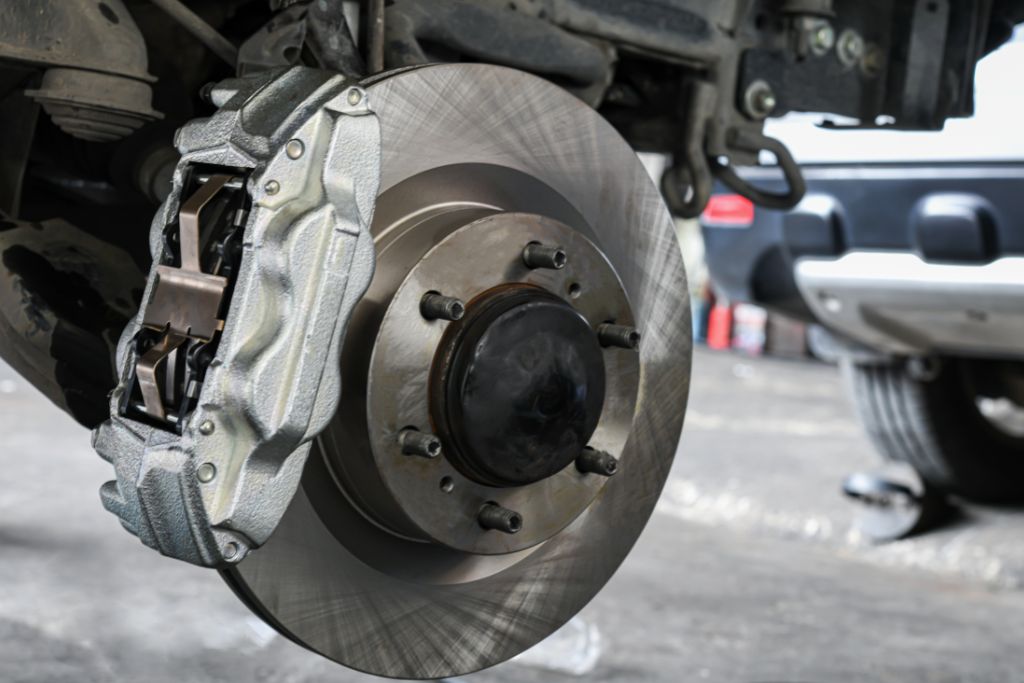
xr:d:DAFjpvRw0a0:3,j:5211329278,t:23052214
Your car’s brakes are the silent guardians of your safety. Every smooth stop, every avoided collision, relies on this intricate system functioning flawlessly. Yet, brakes are often neglected until a warning sign – a grinding noise, a spongy pedal – sends shivers down our spines. Let’s delve into the world of brake service, understanding its importance and the different procedures involved.
The Symphony of Stopping:
At the heart of your car’s braking system lies a beautiful interplay of components. When you press the brake pedal, a hydraulic line filled with brake fluid transmits pressure to the calipers. These calipers, like powerful pincers, squeeze the brake pads against the rotors (discs) on each wheel. Friction between the pads and rotors slows down the wheels, ultimately bringing the car to a halt.
The Importance of Regular Brake Service:
Just like any hardworking system, brakes wear down over time. Friction takes its toll on the brake pads, causing them to thin. Worn pads reduce braking efficiency and can damage the rotors. Brake fluid, too, deteriorates by absorbing moisture, leading to a spongy pedal feel and decreased braking performance.
Regular brake service is crucial for maintaining optimal safety. Here’s what a typical service might involve:
- Visual Inspection: A thorough inspection of the entire braking system is the first step. Mechanics check the thickness of the brake pads, looking for cracks or uneven wear. They also examine the rotors for warping or excessive wear. Caliper function and brake fluid level are also assessed.
- Brake Pad Replacement: If the pads are nearing the wear limit, they’ll be replaced with new ones. This is the most common brake service procedure.
- Rotor Resurfacing or Replacement: Depending on the condition of the rotors, they might be resurfaced (smoothed out) to remove minor warping or grooves. In severe cases, rotor replacement becomes necessary.
- Brake Fluid Flush: Brake fluid absorbs moisture over time, reducing its boiling point. This can lead to a phenomenon called “brake fade,” where the brakes become less effective due to boiling brake fluid. A brake fluid flush replaces the old fluid with fresh, dry fluid, restoring optimal performance.
- Caliper Cleaning and Lubrication: Over time, calipers can develop rust or grime buildup on the slide pins. This can impede proper caliper movement, affecting braking performance. Cleaning and lubricating the slide pins ensures smooth caliper operation.
Signs You Need Brake Service:
Here are some red flags that indicate your car might be due for brake service:
- Grinding noises: This is a classic sign of worn brake pads. Metal-to-metal contact between the pads and rotors creates a grinding sound.
- Spongy brake pedal: This usually indicates air in the brake lines or deteriorated brake fluid. A firm pedal feel is essential for confident braking.
- Increased stopping distance: If your car takes longer than usual to come to a complete stop, it could be due to worn brake pads, warped rotors, or other brake system issues.
- Vibrations when braking: This can be caused by warped rotors or uneven brake pad wear.
The Choice Between DIY and Professional Service:
While some brake service procedures, like replacing brake pads, might seem DIY-friendly, it’s crucial to weigh your experience and comfort level. Brakes are a safety-critical system, and improper installation can have disastrous consequences. Here’s a breakdown to help you decide:
- DIY:
- Suitable for mechanically inclined individuals comfortable working with car brakes.
- Requires specialized tools and a dedicated workspace.
- Online tutorials and repair manuals can be helpful resources.
- Professional Service:
- Recommended for those unfamiliar with car brakes.
- Ensures proper installation and avoids potential safety risks.
- Qualified mechanics can diagnose and address complex brake issues.
Investing in Peace of Mind:
Brake service might not be the most glamorous car maintenance task, but it’s undeniably vital. By understanding its importance, being aware of the warning signs, and making informed decisions about service, you can ensure your car stops safely and predictably, allowing you to focus on the joy of the journey. Remember, your brakes are the silent guardians of your safety – treat them with the respect they deserve.







